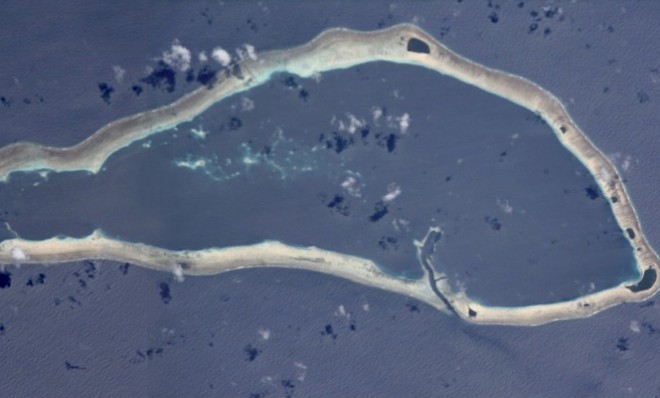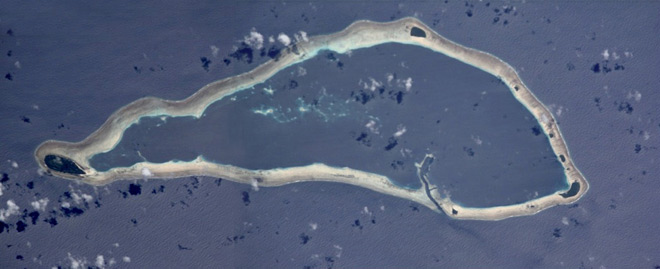The tiny island where men have their own language
Women and children can understand the language, but it is primarily used among men engaged in male domain activities like fishing and boat-building


A free daily email with the biggest news stories of the day – and the best features from TheWeek.com
You are now subscribed
Your newsletter sign-up was successful

In 1837, the British cutter Lambton sailed from Sydney to Ngatik (now Sapwuahfik, above), a tiny island in Micronesia. On orders from Captain Charles "Bloody" Hart, who hoped to take control of the valuable supply of tortoise shells there, the crew massacred all the men on the island. They left behind some European and Ponapean crew members, installing an Irishman named Paddy Gorman as a "chief," and the sailors claimed the widowed island women as their wives.
Today, the islanders speak a dialect of the Ponapean language of the region. But there is another language spoken on the island, called Ngatikese Men's Language or Ngatikese Pidgin, that is spoken only by men. It was described by the late well-known linguist of Austronesian languages, Darrell Tryon. The women and children on the island can understand it, but it is primarily used among men engaged in male domain activities like fishing and boat-building. It developed from an English-based pidgin — one of many in Austronesia — but because Ngatik lies so far from the main shipping routes of the region, it resisted further mixing, remaining today a sort of preserved historical crumb dropped from a passing ship. It is the echo of the voices of those 19th century sailors.
This makes it different from the other pidgins of the region, such as Tok Pisin and Bisalma, which developed over a long period of steady contact with shipboard language, and have many features in common with each other. For example, many of those languages use blong (from "belong") as a marker of possession, and bambai ("by and by") as a marker of future tense. Ngatikese Pidgin uses kon ko (gonna go) instead of bambai and possessive pronouns instead of blong (hi nihm, "his name" as opposed to nem blong em), features that make it more similar to the New South Wales Pidgin of the 1820s and '30s, now extinct.
The Week
Escape your echo chamber. Get the facts behind the news, plus analysis from multiple perspectives.

Sign up for The Week's Free Newsletters
From our morning news briefing to a weekly Good News Newsletter, get the best of The Week delivered directly to your inbox.
From our morning news briefing to a weekly Good News Newsletter, get the best of The Week delivered directly to your inbox.
Overall, the Ngatikese Men's Language is more Ngatikese than English. Most of the words and grammatical structure come from Ngatikese. The English and English-based pidgin used by the European and Ponapean sailors eventually receded, and the language and people of Ngatik became Ngatikese again, or rather Sapwuahfik, the aboriginal name they revived in 1986. But there remained this one strange little practice, this thing that men do, that preserves a piece of tragic history from another time.
A free daily email with the biggest news stories of the day – and the best features from TheWeek.com
Arika Okrent is editor-at-large at TheWeek.com and a frequent contributor to Mental Floss. She is the author of In the Land of Invented Languages, a history of the attempt to build a better language. She holds a doctorate in linguistics and a first-level certification in Klingon. Follow her on Twitter.
